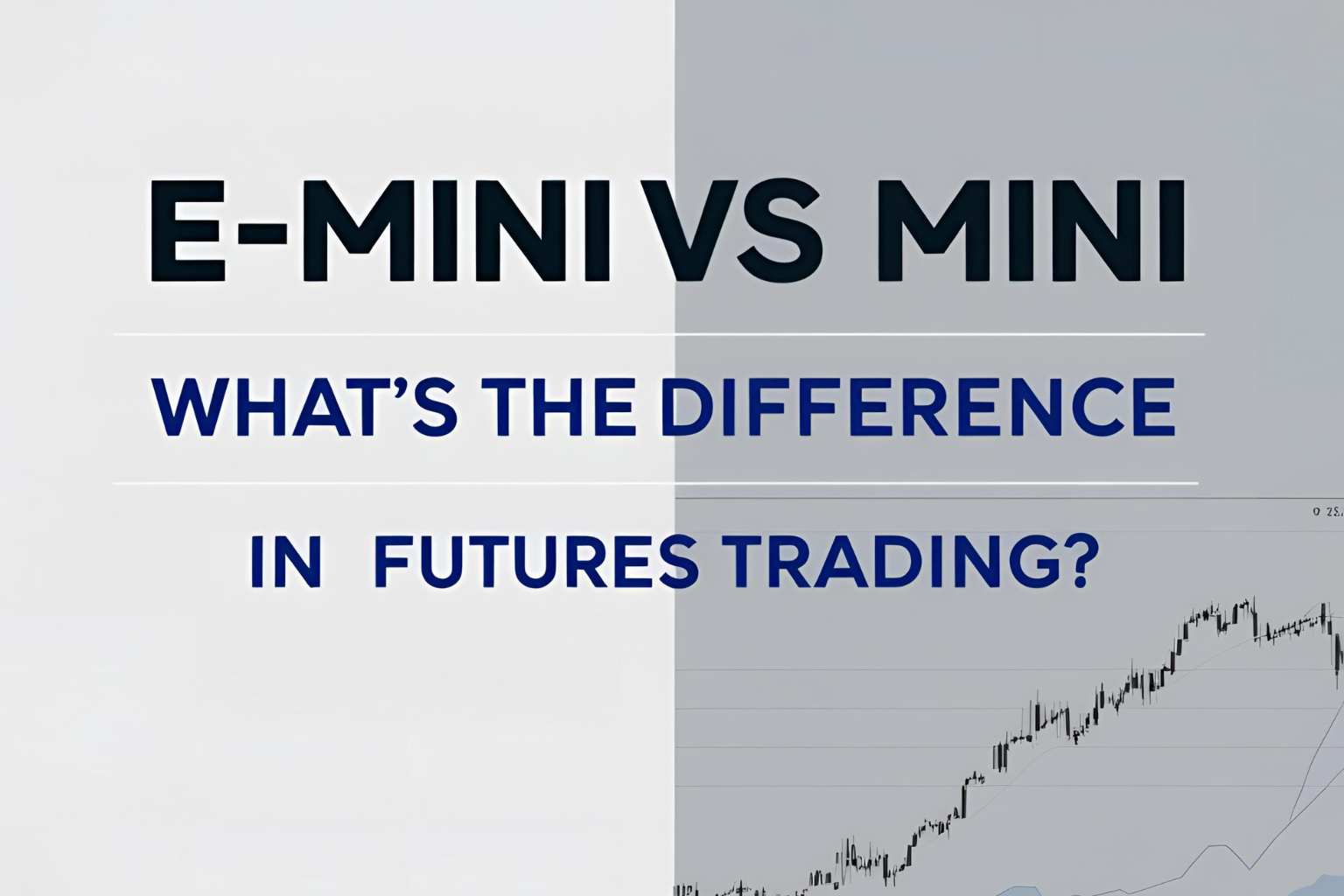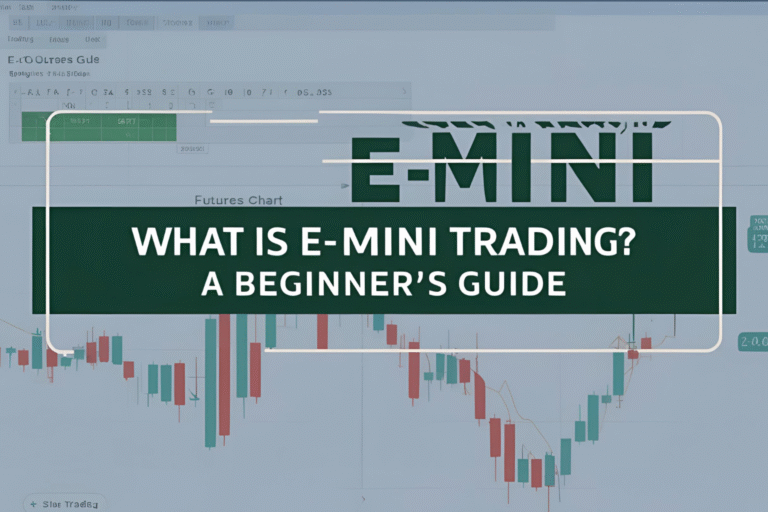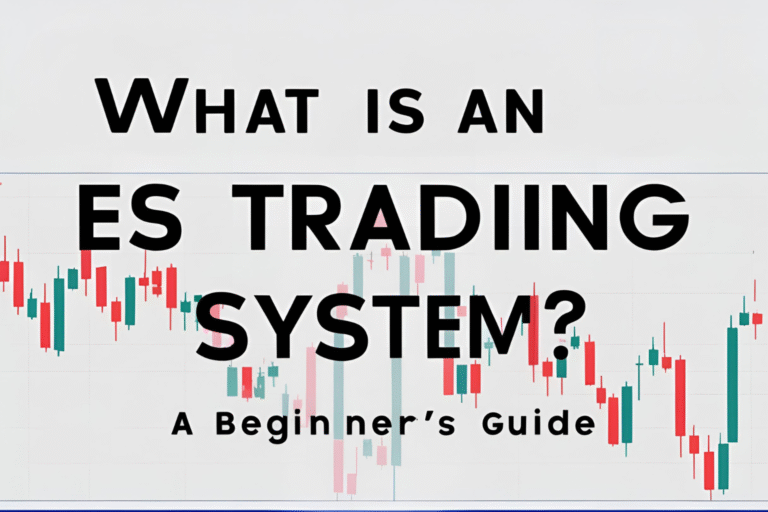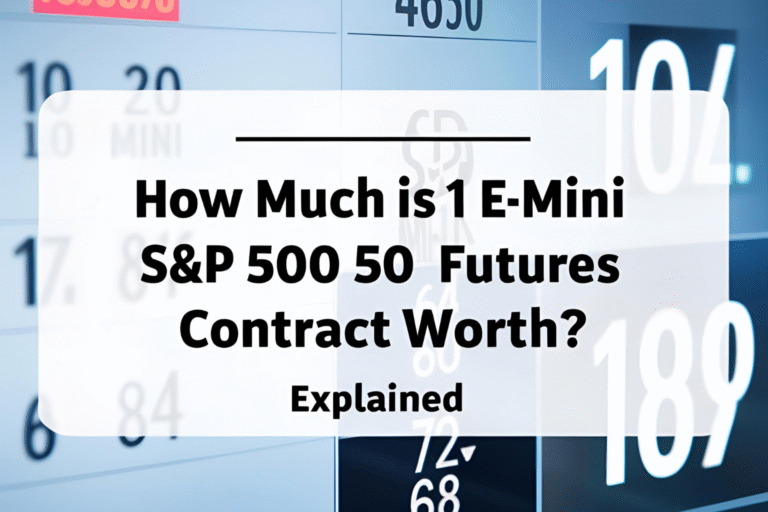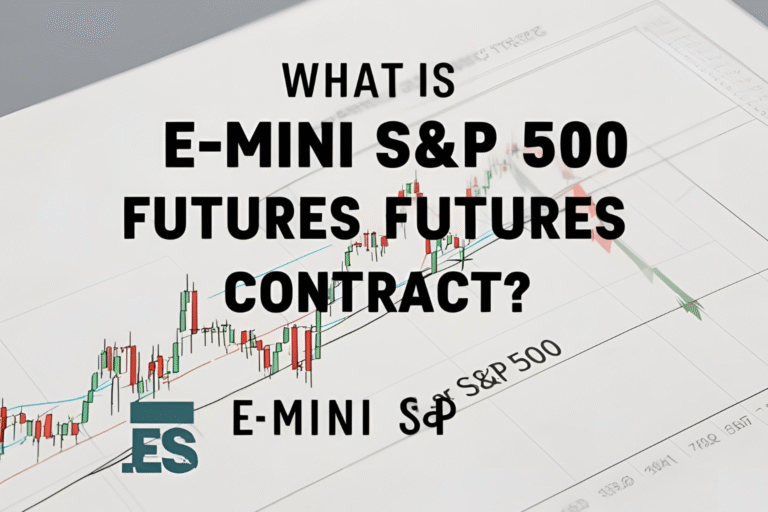E-mini vs Mini: What’s the Difference in Futures Trading?
If you’re just starting out in futures trading, you might wonder: “What’s the difference between a Mini and an E-mini contract?”
Although the names sound similar, there are some important distinctions, especially when you’re choosing which product to trade as an Indian beginner. This guide will help you understand how they differ and which one is better suited for you.
What Is a Mini Futures Contract?
A Mini contract is simply a smaller-sized version of a standard futures contract. Exchanges introduced mini contracts to make futures trading accessible for traders with less capital.
For example:
- Mini Nifty Futures on NSE is 1/10th the size of the standard Nifty Futures.
- Mini Gold Futures on MCX also follow a similar principle.
What Is an E-mini Futures Contract?
An E-mini contract is an electronically traded mini futures contract. The term “E-mini” specifically refers to U.S. exchange-listed contracts like those on the Chicago Mercantile Exchange (CME).
The most popular E-mini contract is the:
- E-mini S&P 500 (Symbol: ES)
It represents 1/5th the size of the original S&P 500 full-size futures contract and is traded entirely online via CME Globex.
Key Differences: E-mini vs Mini
| Feature | Mini Futures | E-mini Futures |
|---|---|---|
| Definition | Smaller version of full contract | Electronically traded mini contract |
| Common Markets | India (NSE, MCX) | U.S. (CME) |
| Trading Venue | Local exchanges | Global (CME Globex) |
| Accessibility | Via Indian brokers | Requires international brokers |
| Currency | INR | USD |
| Popular Example | Mini Nifty | E-mini S&P 500 (ES) |
E-mini: A Global Product
The term “E-mini” is a CME-specific term. CME created these products in the late 1990s to allow small traders to access major indices like:
- S&P 500 (ES)
- Nasdaq 100 (NQ)
- Dow Jones (YM)
- Russell 2000 (RTY)
Because they are globally recognized, they’re a favorite among institutional and retail traders alike.
Mini: More Localized
Mini futures are generally localized to regional exchanges, such as:
- NSE in India
- SGX in Singapore
- MCX for commodities
They are mostly used by traders who do not want exposure to foreign currency risks and prefer to keep trading within India.
Why E-mini Is Preferred by Global Traders
- High Liquidity: E-mini contracts have massive daily trading volumes.
- 24-Hour Access: You can trade almost any time of the day, including from India.
- Global Market Exposure: Especially useful for traders who want to track and trade the U.S. market.
- Advanced Trading Tools: Access to platforms like ThinkorSwim, NinjaTrader, and TWS.
Which One Should Indian Beginners Choose?
Here’s how to decide:
| If You Want… | Go For… |
|---|---|
| Simplicity and INR-based trading | Mini (e.g., Mini Nifty) |
| Access to U.S. indices like S&P 500 | E-mini (via CME broker) |
| Lower capital and less complexity | Mini (India) |
| Global exposure and deeper markets | E-mini (USA) |
Both are useful depending on your trading goals. But if you’re learning U.S. markets, E-mini trading systems give you more global scope.
Example: E-mini vs Mini Nifty
| Feature | E-mini S&P 500 (ES) | Mini Nifty Futures |
|---|---|---|
| Lot Size | $50 × Index | ₹20 × Index |
| Index Base | S&P 500 | Nifty 50 |
| Exchange | CME (USA) | NSE (India) |
| Trading Time | 23 hours/day | 9:15 AM to 3:30 PM IST |
| Margin | $5,000–$15,000 | ₹1–1.5 lakh |
Conclusion
E-mini and Mini futures both serve as smaller versions of their full-size counterparts, but they are designed for different markets and serve different purposes. If your goal is to trade the global S&P 500 index from India, E-mini is your go-to. But if you prefer to stay within domestic boundaries, Mini Nifty or Mini Gold is a safer starting point.
FAQs
Q1. Is E-mini the same as Mini?
No. E-mini is a specific product line by CME, while Mini is a general term for smaller futures contracts.
Q2. Can I trade E-mini in INR?
No. E-mini contracts are USD-denominated and require an international broker account.
Q3. Which is better for beginners in India—Mini or E-mini?
If you’re focused on global markets, E-mini is better. For domestic markets, go with Mini futures like Mini Nifty.
Q4. Are Mini futures available on U.S. exchanges?
Not in the same way. U.S. markets use terms like E-mini and Micro E-mini.
Q5. Can I trade both Mini and E-mini from India?
Yes, Mini via Indian brokers, and E-mini via LRS and a global brokerage platform.

